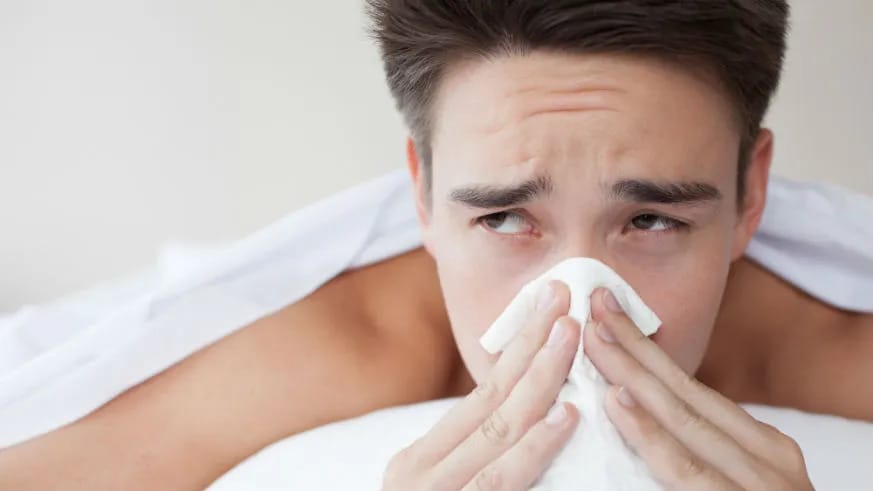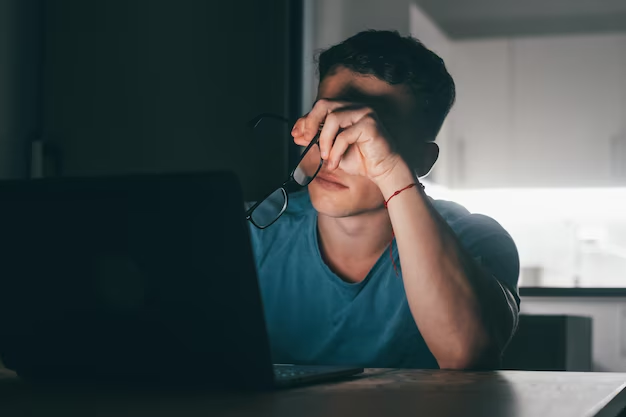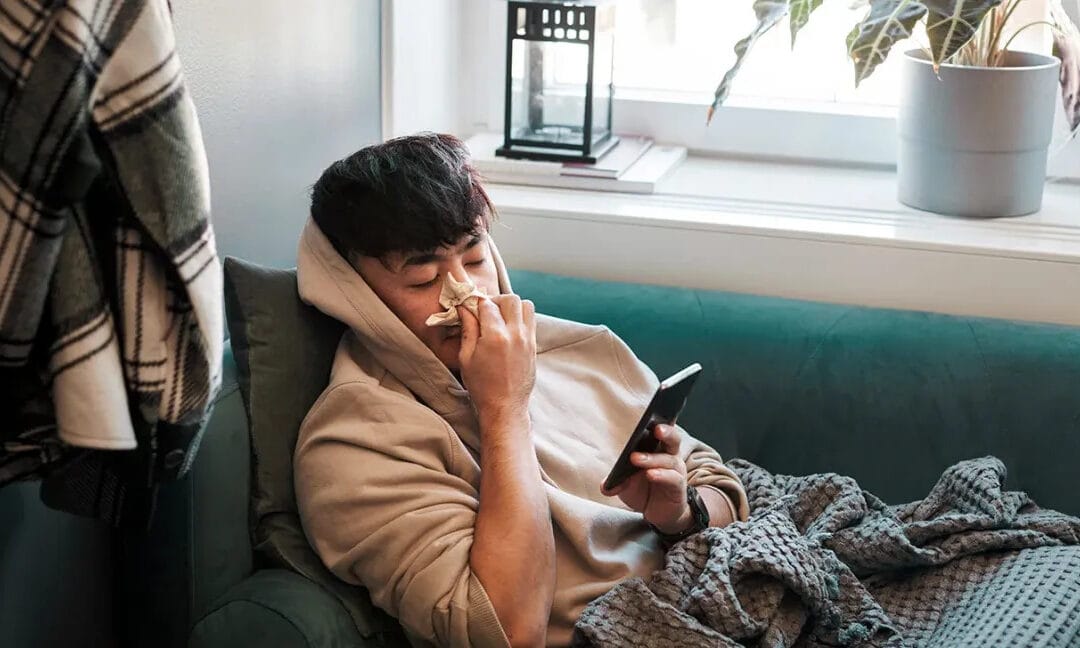Understanding the Impact of POIS on Teenagers and How to Manage It
Post-Orgasmic Illness Syndrome (POIS) is a rare and often misunderstood condition that affects some men after ejaculation, causing a range of debilitating symptoms. While much of the research and discussion on POIS focuses on adults, it’s important to acknowledge that adolescents can also experience POIS. The onset of puberty is often the time when symptoms first emerge, and for a young man, this can be particularly distressing.
In this post, we will discuss POIS in the context of adolescence, covering what young men should know about this condition, how it can affect their physical and emotional well-being, and what they can do to manage their symptoms effectively.

What Is POIS and How Does It Affect Young Men?
Post-Orgasmic Illness Syndrome (POIS) is a rare condition that can have a profound effect on young men, particularly during adolescence. POIS is characterized by a collection of flu-like symptoms that occur after ejaculation, and for young men, these symptoms can be confusing and overwhelming. Understanding the nature of POIS and its impact on physical, mental, and emotional well-being is key to managing the condition.
The symptoms of POIS typically begin within minutes or hours of ejaculation and can last anywhere from a few hours to several days. For adolescents, who are already navigating hormonal changes and emotional turbulence, the onset of POIS can create additional stress and anxiety. Here are the common symptoms that young men may experience:
-
Severe Fatigue: One of the most debilitating symptoms of POIS is extreme tiredness, often described as overwhelming fatigue. This can leave young men feeling drained of energy, making it difficult to focus on schoolwork, social activities, or even basic daily tasks. The fatigue can persist for days, making it difficult to recover quickly.
-
Muscle Pain and Weakness: Many adolescents with POIS report muscle aches and weakness, particularly in the arms and legs. This can make physical activity, including sports or gym class, more challenging. Muscle soreness can resemble the feeling of having the flu or being physically worn out.
-
Cognitive Difficulties: Often referred to as “brain fog,” cognitive difficulties are a hallmark of POIS. Adolescents may find it hard to concentrate, experience short-term memory lapses, or struggle with decision-making. These cognitive impairments can affect academic performance and social interactions, contributing to feelings of frustration or embarrassment.
-
Mood Changes: Adolescents with POIS often experience mood swings or emotional changes after ejaculation. This can include feelings of irritability, sadness, or even depression. In some cases, anxiety may develop, particularly if the individual is worried about experiencing future POIS episodes. Adolescents may feel isolated or embarrassed about their symptoms, leading to emotional distress.
-
Flu-Like Symptoms: In addition to cognitive and emotional symptoms, many young men with POIS experience physical symptoms that mimic the flu. This can include chills, fever, body aches, and general malaise. These flu-like symptoms can be confusing for adolescents, as they may not immediately link them to ejaculation, making diagnosis and management more difficult.
Impact on Adolescents:
During adolescence, when young men are already navigating a complex mix of physical and emotional changes, experiencing POIS can be particularly unsettling. Adolescents may not fully understand what’s happening to their bodies and may struggle with embarrassment or fear of judgment, making it difficult to talk about their symptoms.
Here are some key challenges young men with POIS face:
1. Social Anxiety and Isolation: Adolescence is a time when building relationships and socializing are important. However, POIS can cause young men to withdraw from social situations due to the fear of triggering symptoms.
2. Disrupted School Life: The fatigue and cognitive difficulties associated with POIS can interfere with a young man’s ability to focus in school, complete assignments, and perform well academically.
3. Self-Esteem Issues: As young men struggle with the physical and emotional effects of POIS, they may feel less confident or question their self-worth. The condition can make them feel abnormal or different from their peers.
What Causes POIS in Adolescents?
Although the exact cause of POIS remains unclear, research suggests it may be linked to an immune system reaction to a man’s own semen (autoimmune response). Adolescents with POIS may develop allergic-like reactions to their semen, leading to the characteristic symptoms after ejaculation. While this theory is still being studied, it’s important for young men and their families to understand that POIS is not a psychological disorder; it has a biological basis.
Recognizing the Signs: When to Seek Help
For young men experiencing POIS symptoms, it’s crucial to seek medical advice early. A healthcare professional can help rule out other conditions and provide a proper diagnosis. Early intervention is important for managing the condition effectively.
Here are signs that should prompt an adolescent to seek help:
- Persistent Symptoms After Ejaculation: If the symptoms continue to occur after ejaculation and last for several days, it’s a strong indicator of POIS.
- Interference with Daily Life: If the symptoms are affecting school performance, social life, or mental health, it’s time to see a doctor.
- Difficulty Managing Symptoms: If the usual strategies for managing POIS symptoms aren’t helping, it’s important to explore other options with a healthcare provider.

Coping Strategies for Young Men with POIS:
Managing POIS during adolescence involves a combination of medical support, lifestyle changes, and mental health strategies. Here are some ways young men can cope with their symptoms:
1. Open Communication with a Doctor: The first step to managing POIS is consulting a doctor or healthcare provider who is familiar with the condition. Adolescents should not be afraid to discuss their symptoms openly and honestly.
2. Education and Awareness: Understanding POIS can empower young men to take control of their symptoms. Education is key—knowing what triggers their symptoms and learning to manage them can help reduce anxiety.
3. Lifestyle Adjustments:
-
- Exercise: Light physical activity can help manage fatigue and muscle pain.
- Balanced Diet: Maintaining a healthy diet can improve overall well-being and energy levels.
- Adequate Sleep: Ensuring enough rest is crucial for recovery, especially after experiencing POIS symptoms.
4. Mental Health Support:
-
- Therapy: Talking to a therapist or counselor can help adolescents process their emotions and build coping mechanisms for dealing with anxiety or depression associated with POIS.
- Mindfulness Practices: Techniques such as meditation or deep-breathing exercises can help reduce stress and anxiety related to the condition.
5. Peer Support: Finding support from peers who are also dealing with POIS can be helpful. This can be through online forums or support groups where young men can share their experiences and coping strategies.
6. Education for Parents: In many cases, parents play a crucial role in helping young men manage POIS. Providing parents with information about the condition and encouraging open discussions can create a supportive environment at home.
Treatment Options: What Adolescents Should Know
There is currently no cure for POIS, but several treatment options are being explored. For young men, finding the right treatment can take time and may involve a combination of approaches. Some potential treatments include:
- Antihistamines: These medications can help manage allergic-like symptoms that occur after ejaculation.
- Immune Modulation Therapy: Some doctors have explored therapies that modify the immune response to reduce the body’s reaction to semen.
- Pelvic Floor Therapy: This approach helps strengthen the muscles involved in ejaculation, potentially reducing the severity of POIS symptoms.
Conclusion
For young men, experiencing POIS during adolescence can be daunting, but it’s crucial to understand that they are not alone in this journey. Seeking medical advice, building coping strategies, and staying informed about the condition can help manage symptoms effectively. While POIS may seem overwhelming, with the right support and resources, young men can navigate adolescence and lead fulfilling lives. It’s important to remember that POIS does not define them—by working with medical professionals, fostering a supportive environment, and developing effective coping strategies, adolescents can take control of their health and future success without letting POIS hinder their personal growth or potential.
